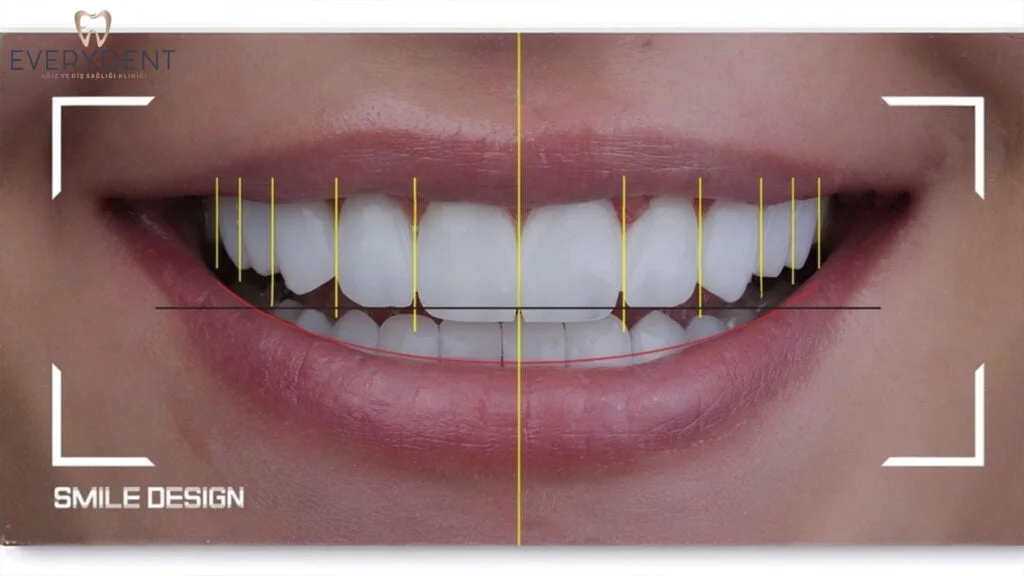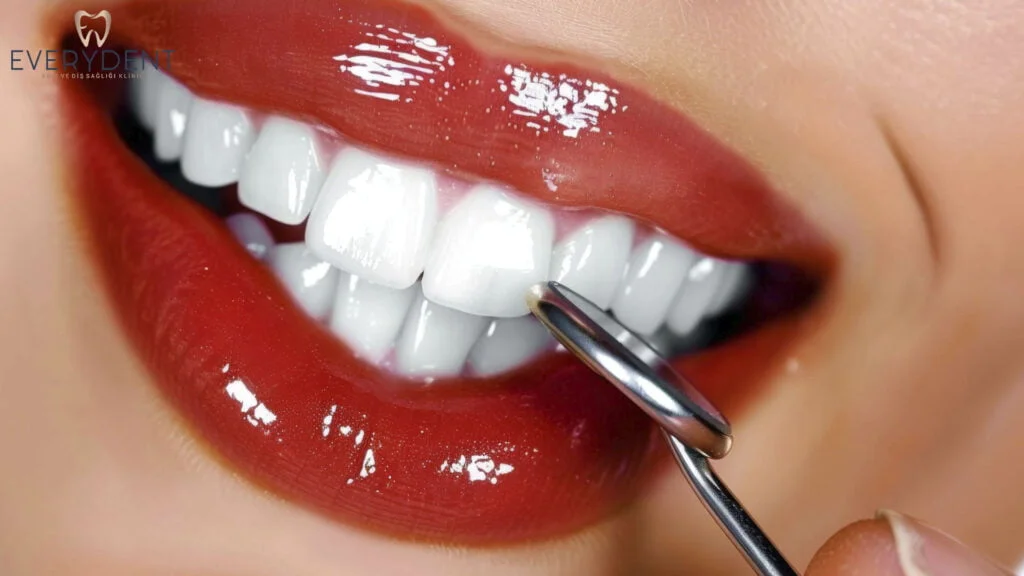Smile design is a concept that has become increasingly popular in recent years as part of aesthetic dentistry. While people’s facial expressions reflect their moods and characters, their smiles are the most obvious of these expressions. It covers a series of dental treatments that aim to provide individuals with a natural and aesthetic smile. This process is not limited to just whitening or correcting teeth, but also the general aesthetics of the gums and oral structure are part of this design.
What is Smile Design?
Smile design is a comprehensive process that emphasizes aesthetics in dentistry and aims to achieve an ideal smile that is compatible with the person’s face. This design is planned by considering the general harmony of the teeth, gums, lips and facial features. This process is completely personalized depending on factors such as the individual’s face shape, skin tone, tooth color, size, shape and alignment of the teeth. Since each individual’s face and mouth structure is unique, smile design is also planned and implemented completely individually.
The aim is to achieve a healthy and aesthetic appearance of the teeth and to achieve a smile that is compatible with the general expression of the face. In addition, details such as the shape and position of the lips, the symmetry and visibility of the gums are an integral part of this process. Smile design is applied not only for aesthetic concerns, but also to increase the person’s self-confidence and provide a better quality of life.
How is Smile Design Done
The smile design process usually consists of several stages and this process is shaped according to the person’s needs and wishes. Here are the basic steps of this process:
- Consulting and Evaluation: The first step is to understand the patient’s wishes and expectations. The dentist evaluates the patient’s oral structure, the condition of the teeth and the general facial aesthetics. At this stage, the patient’s expectations, medical history and oral health are taken into consideration.
- Planning and Design: After the evaluation, the dentist creates a treatment plan specific to the patient. This plan includes factors such as the alignment, color, size and shape of the teeth. When deemed necessary, digital simulations are used to show the patient what kind of smile they will have after the treatment.
- Preparation and Treatment: After the planning stage, the necessary treatments are started. At this stage, procedures such as teeth whitening, braces or transparent plate treatment, dental veneers, dental implants, and gum aesthetics can be applied. These treatments may vary depending on the patient’s current dental structure and needs.
- Final Touches: In the final stage of the smile design process, final checks of the treatments performed are made and the design is completed with small touches when deemed necessary. At this stage, the patient’s satisfaction with their new smile is assessed and corrections are made if necessary.

The smile design process is a process that requires proper planning and expertise, as well as aesthetic goals. Therefore, the experience and professional competence of the dentist performing the procedure plays a critical role. Smile design is not only an aesthetic intervention, but also an art that aims to achieve a natural and balanced appearance that is compatible with the person’s facial aesthetics. It is essential for the dentist to correctly understand the patient’s expectations and wishes, and to create a treatment plan specific to the individual accordingly. During the treatment process, how elements such as the shape, size, color and alignment of the teeth fit into the facial structure is carefully evaluated.
After the successful completion of the smile design, it is of great importance to pay attention to regular oral care in order for the results to be long-lasting. Brushing the teeth regularly every day, not neglecting the use of dental floss and adhering to the periodic check-up appointments recommended by the dentist help to preserve the aesthetic smile obtained in the long term. In addition, these steps are necessary to prevent stains that may occur on the teeth over time, to protect gum health and to maintain general oral hygiene. The aesthetic benefits offered by smile design are supported by these care steps, allowing the person to enjoy a healthy and beautiful smile that increases their self-confidence for many years.
What are the advantages?
Smile design is a practice that significantly increases individuals’ quality of life and self-confidence, beyond improving their aesthetic appearance. When people have an aesthetically attractive smile, they can express themselves better and be more comfortable in society. Such a change creates a positive effect not only on their external appearance but also on their inner world. A beautiful smile not only leaves a warm and friendly impression in social relationships, but also allows you to have a more professional and reliable stance in business life.
The aesthetic benefits offered by smile design create positive effects in social and professional life, while also improving general oral health. Proper alignment of the teeth not only provides an aesthetic appearance, but also contributes to the more efficient performance of chewing functions. This allows the digestive process to start in a healthier way and can also have positive effects on stomach health in the long term. In addition, having a healthy appearance of the gums helps prevent gum diseases and reduces the risk of tooth loss. These holistic health and aesthetic gains obtained with smile design increase the overall quality of life of the individual and reinforce their self-confidence.

Smile Design Prices
Smile design is a process planned specifically for each person as part of aesthetic dentistry, and the cost of this process varies depending on many factors. First of all, since each individual’s oral structure, dental condition and aesthetic expectations are different, the treatment process is also planned specifically for each person. Therefore, the scope of smile design, the techniques to be used and the interventions to be performed vary from person to person. For example, while teeth whitening alone may be sufficient for some patients, more comprehensive procedures such as dental veneers, orthodontic treatment or implants may be required for others.
In addition, the experience of the dentist, the location of the clinic, the quality of the materials used and the length of the treatment process are other important factors affecting the prices. Smile design is a process that should be evaluated as an aesthetic investment, and in this process, in addition to the cost, choosing the right doctor is also extremely important in order to achieve quality and long-lasting results. As a result, smile design prices vary depending on personal needs, techniques used and the expertise of the preferred dentist, so instead of giving a definitive price range, the individual’s specific situation should be evaluated.
